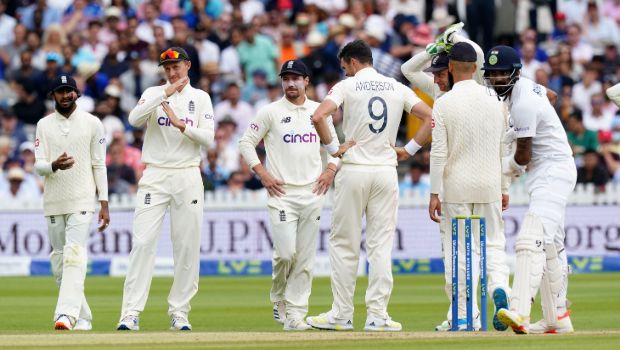If Test cricket ever needed another advertisement for its enduring allure, the third India England Test was exactly that — a contest that delivered drama, skill, and intensity across all five days. It had everything a cricket fan could ask for: quality batting, sharp bowling, tactical intrigue, moments of tension, and a few heated exchanges to spice things up. This was a Test match that bordered on being complete — a showcase of why the longest format remains the truest test of cricketing character.
England eventually emerged victorious in this gripping encounter, but the game was evenly poised for long stretches. Their victory was underpinned by smart decisions from the very start. Opting to bat first on a surface that looked tricky but playable was a decision rooted in sound judgement — especially given that recent toss calls have often gone against them. This was the first sign that Ben Stokes, as captain, was tuned into the demands of the occasion.
The first innings of both sides barely had much between them, but the standout factor was undoubtedly Stokes — both as a leader and an all-rounder. His captaincy was a near perfect display of balancing composure with assertiveness. He didn’t just lead through strategy; he led by example, contributing with the bat, the ball, and even in the field. Stokes was calm under pressure yet unwavering in his belief in the team’s processes — tactically sharp, mentally resilient, and emotionally invested. Few captains can combine all of that, but Stokes did so with aplomb throughout the match.
Another hallmark of England’s approach was their calculated batting. In recent times, England’s “Bazball” philosophy has often been associated with a relentless scoring rate, sometimes bordering on recklessness. But in this Test, they showed a refreshing maturity by respecting the conditions. There was no unnecessary attempt to force the pace early. Instead, England focused on building a total that could keep them in the contest as the pitch inevitably deteriorated. They found that middle ground between aggression and caution, a balance they’ve sometimes lacked in previous games.
With the ball, the return of Jofra Archer was transformative. He added an edge to England’s bowling that has been missing — extra pace, hostility, and the ability to make things happen even when the ball wasn’t talking much. That, combined with Stokes’ own efforts, gave England the upper hand during critical phases, especially on the final day.
A pivotal passage unfolded on the morning of Day 5 when Stokes threw the ball to Archer despite Brydon Carse ending Day 4 on a high with a couple of wickets. That decision was
decisive. Archer’s spell blew the game open, removing the dangerous Rishabh Pant and Washington Sundar early. Then Stokes himself accounted for KL Rahul, who had been India’s last major hope of resistance. From 58-4 overnight, India collapsed swiftly, losing another three for not much more — a passage of play that confirmed England’s ascendancy.
For India, the defeat will sting because they had their moments, particularly in the first innings. They lost the game largely because they failed to build on a strong first-innings position and missed the chance to secure a substantial lead over England. A slightly bigger first-innings total could have shifted the balance, especially on a pitch that offered variable bounce as the game wore on. The batting unit will face some tough questions. I think they will need to take a call on Karun Nair, whether to replace him or give him a longer rope.
Shubman Gill, who had looked so compact in previous games, seemed a little uncertain at the crease. But I feel he a mental reset, rather than a technical overhaul, will keep in good stead going into the series.
Similarly, while India’s spin options continue to revolve around Ravindra Jadeja and Washington Sundar, the absence of Kuldeep Yadav remains a talking point. His wrist spin could have added variety to India’s attack, particularly as the pitch aged. But with Sundar doing a decent job, selectors might hesitate to tweak the combination.
One area India will regret is the number of extras conceded, in a low-scoring contest, every run matters, and those extras can sometimes tilt the game. Additionally, their batting frailty in the second innings, especially under pressure, will be a concern heading into the next Tests.
The irony isn’t lost either: Jasprit Bumrah returned for this match, delivered a brilliant first innings spell to claim five wickets, and yet India lost. In the previous Test, Bumrah was rested, and India managed to win. It just underscores the unpredictable nature of this series and Test cricket in general.
From a broader perspective, the result has set up the series beautifully. With the scoreline close, both sides have plenty to reflect on and adjust before the next clashes at Old Trafford and The Oval. England will take heart from their improved discipline and the form of their key players. India, despite the defeat, will know they’ve been in positions to win all three Tests so far, a testament to how finely matched these teams are.
For India, learning from England’s tactical discipline, especially Stokes’ leadership, could be vital. Gill and others in the Indian side, particularly those still maturing in Test cricket,
would do well to observe how Stokes marshals his resources, both his players and his own capabilities as an all-rounder.
In the end, this was Test cricket at its absolute best. Every day had its own storyline, and the final day delivered the decisive twist. The series is alive, the stakes are high, and both teams now head into the remaining matches knowing there is little room for error.
Cricket fans couldn’t ask for more — the India-England rivalry is delivering in full, and the drama is far from over.























